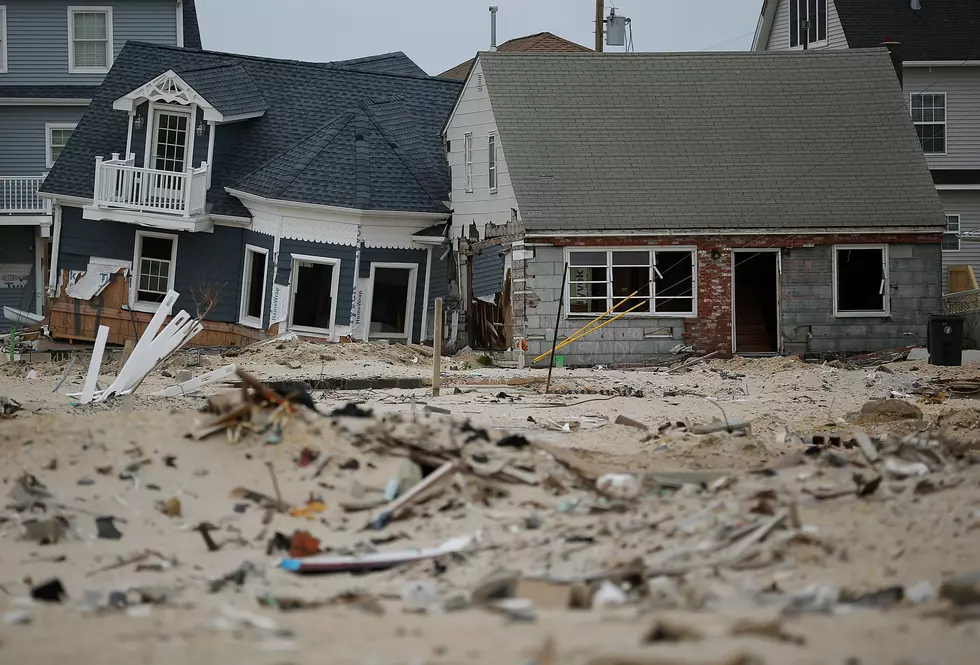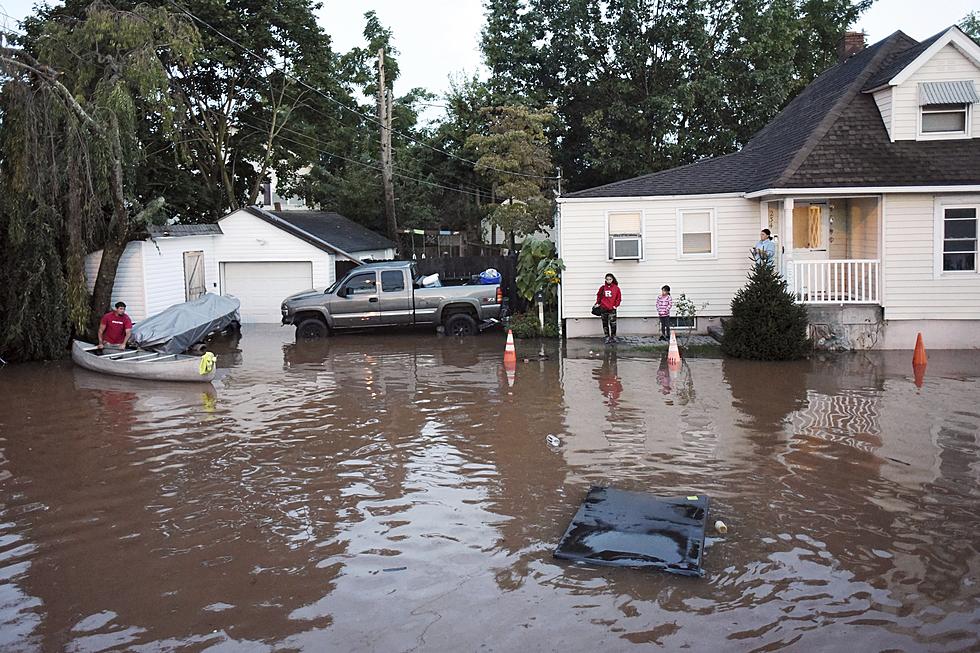MacArthur amends NFIP reauthorization bill before House vote
The National Flood Insurance Program (NFIP) expires on September 30, unless Congress reauthorizes it. Bearing the effects of Superstorm Sandy in mind, Representative Tom MacArthur (R-3) inserts provisions that he expects will improve its affordability, accessibility and accountability.
One of 60 members of the House Financial Services Committee, many of whom have no ties to flood issues that typify parts of the Jersey Shore and low-lying flood regions, MacArthur admits that reauthorization is an uphill struggle - especially with a chairman, Texan Republican Jeb Hensarling, who's no fan.
"A lot of people on the Committee are not from coastal areas. It falls on the couple of us who are, to make sure that we get a fair shake," MacArthur explained.
"Six months ago, when I first got on the Committee, the Chairman told me that he wanted to put the national flood program on the path to extinction. It's taken a long time to bring him to the understanding that we have to get this program reauthorized."
"He's fond of saying that 96 percent of Americans are subsidizing four percent," MacArthur continued. "Whenever he does, I interrupt him and say, 'No. One hundred forty-million people live in counties that abut the ocean. Yes, the primary people affected are the homeowners and businesses who are flooded. But all of these other...neighborhoods and counties are also affected."
"That's just the people on the coast," he said. "There are millions more who live along rivers, in dry river gullies that are subject to flash floods, who live along lakes. This affects well over half of the US population."
The Committee examined a half-dozen bills, each addressing different NFIP components, and cobbled them together into a comprehensive measure to bring to the full House, MacArthur said.
"I believe that we'll have a full five-year reauthorization well in advance of the September 30 deadline," MacArthur said, adding that he focused on access, affordability, mitigation and accountability.
Managing costs
The Republican concedes that his arguments require intense negotiation, because they involve expenses that wouldn't exist if the program just lapsed. Components of the original version left him cold.
"They came in with rate structures that I thought were too high and too punitive, certainly for the people I represent," MacArthur said, aware that crafters sought to drain some of the $24,000,000,000 in red ink that currently mire NFIP, and to place the onus on policy holders.
"I don't think it's fair," MacArthur said. "That debt is not just the result of the payment of claims to people in New Jersey. It's the result of levees that broke in New Orleans, public works projects funded out of national flood grants, overpayment of claims in Katrina."
Access and affordability required, as MacArthur expressed it, to "play defense a little." The draft bill eliminated from eligibility new construction in flood hazard areas after four years. His amendment would guarantee NFIP coverage for any home owner who rebuilds outside that window and is unsuccessful in obtaining coverage through a private insuror.
Committee members also wanted to accelerate premium increases for owners of houses build before the advent of flood maps in 1974.
"Under law now, they're set between five and 15 percent per year," MacArthur said, which is where they would stay under his amendment. "I still think it's too much," he added, "but it's better than the current law, and much better than what was proposed."
Also too much, from his standpoint, is a provision that he managed to remove, which would have imposed $5,000 deductibles for any home owner in the program who sustained two $1,000 losses in a rolling 10-year period. It now applies only to extreme, severe and repetitive loss properties.
Risk reductions
Flood hazard mitigation gives NFIP some durability. A MacArthur proposal in the larger bill doubles the Increased Cost of Compliance coverage. "This is a $30,000 provision in a flood policy that allows you to comply with the increased cost of zoning regulations," he explained, which can be devoted to home elevation and similar undertakings to meet code standards. "It's woefully inadequate," MacArthur said. "I proposed $125,000...I did get it doubled, to $60,000."
He also inserted a provision that would allow FEMA directors, in certain instances, to pre-pay homeowners, before a catastrophe inflicts damage, to avoid future losses.
Another element is a $1,000,000,000 community flood mitigation fund, aimed at municipal projects that address protection of neighborhoods.
Accountability added
"These are things that shouldn't even be necessary to legislate," MacArthur said, referring to safeguards against manipulation. One provision prohibits FEMA from hiring disbarred attorneys to handle claims, which he said was "rampant" after Superstorm Sandy.
"We also added some language that will increase accountability for write-your-own carriers, accountable for the underpayment of claims. They're already accountable for overpaying claims."
Under the measure, FEMA would be prohibited from imposing unfunded mandates on flood-risk communities. The agency would be required to provide financial means for projects it authorizes to local governments.
Compromises to push the bill to a full House vote meant, for MacArthur, leaving some ideas on a wish list. "I would love to see the Small Business Administration empowered to make low-interest loans to people, for mitigation - to lift their homes, or other things, to prevent future flood loss," he said. "There are provisions in some of the Senate bills that would do that."
One Senate measure would authorize the move, supplying the money by eliminating the interest in payments that the federal government remits to itself on NFIP debt. "That's $400,000,000 a year of interest, that the government pays itself. It's kind of silly, in my view. I'd rather see that money used to avoid future losses."
MacArthur is also acutely aware of controversies surrounding HR 2874, the 21st Century Flood Reform Act, introduced by Wisconsin Republican Sean Duffy. In the view of George Kasimos of Seaside Park, founder of Stop FEMA Now, it would "strip federal flood insurance eligibility from certain properties that flood repeatedly, some expensive properties, and new properties built in flood zones," as he stated in a mass e-mail. Real-estate experts familiar with the bill see it as a path to severe property value upheavals and premium cost spikes. The National Association of Realtors opposes it.
MacArthur press officer Camille Grillo said that "his work to date has already made this legislation more affordable and helped to stabilize the real estate market, but he realizes that he has more work to do. The Congressman has been assured by the Chairman that his concerns will be addressed prior to final consideration of this legislation." She added that MacArthur intends to engage stakeholders and the Chairman to ensure long-term access to affordable flood insurance.
More From Beach Radio









